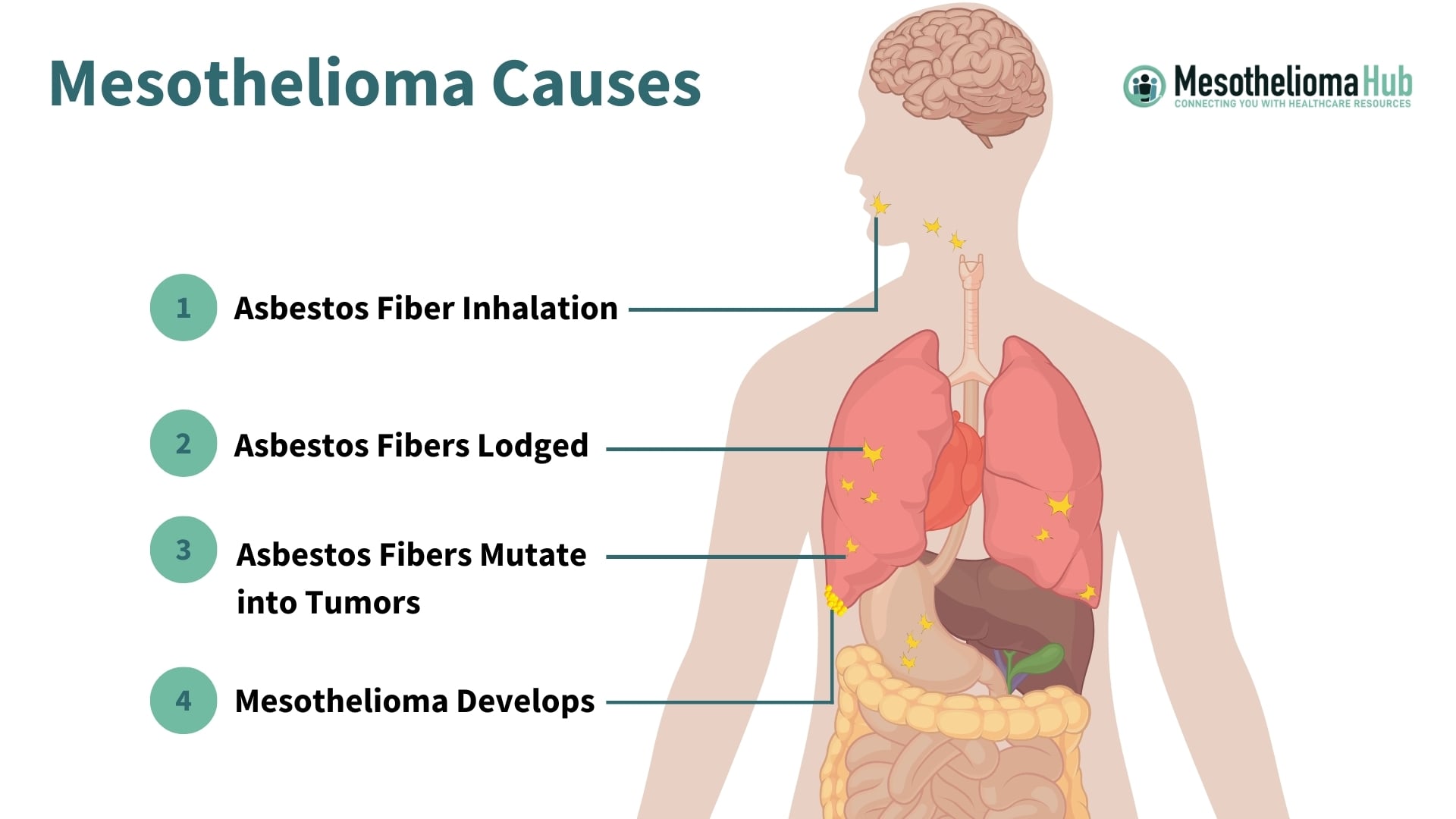What Causes Mesothelioma?
A ’cause’ is something that makes another thing happen. For instance, asbestos is one of the leading causes of cancer called mesothelioma. This naturally occurring material can be found in the environment and infrastructures all over the world because of its early use in construction and other industries before people knew it was poisonous. However, just because something caused another thing to happen doesn’t mean that it will happen every time. Not every person who is exposed to asbestos will develop mesothelioma, but usually, most develop mesothelioma because of prolonged asbestos exposure.
Get Free Mesothelioma Guide

